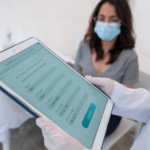Medical errors account for 9.5% of all deaths in the US each year, making medical malpractice the third most common cause of death in the country. Many studies show that patients with limited-English proficiency (LEP) are more likely to experience communication barriers, which often cause extended hospitalization, misdiagnosis, and readmission. Protecting LEP patients from medical errors (and safeguarding your organization and physicians from preventable medical malpractice or negligence claims) starts with high-quality language services.
Here’s how you can enhance your language access plan to improve LEP patient safety and avoid medical malpractice:
Use qualified interpreters to communicate with LEP patients
Poor communication between healthcare providers and patients increases the probability of medical errors. Interpretation helps your team bridge the language gap and improve communication, but you can’t rely on just anyone who speaks the target language.
Avoid ad hoc interpreters
Trusting the LEP patient’s family members or nearby Good Samaritans who claim to speak the language to interpret for your patient introduces many potential issues:

- The ad hoc interpreter may not know medical terminology or be able to accurately convey your staff member’s message to the patient.
- The patient may feel uncomfortable sharing personal medical details with the ad hoc interpreter, compromising the information shared with the healthcare provider.
- Section 1557 of the Affordable Care Act prohibits the use of the patient’s minor children, adult family and friends, and bilingual staff (who do not have interpreting listed as one of their assigned job duties) to act as interpreters for the LEP patient.
Designate bilingual staff or in-house interpreters
Proving your employees can act as qualified interpreters is essential for meeting Section 1557 requirements and related Joint Commission assessment standards.
.png?width=128&height=128&name=Assessment%20(purple%202).png) Do you need documentation that your
Do you need documentation that your
bilingual staff members are qualified?
CyraCom offers assessments
in over 45 languages.
Partner with a qualified language services provider
When evaluating providers, consider how they define “qualified interpreters” and their overall approach to delivering high-quality language services:
- Are interpreters trained to understand medical scenarios and vocabulary? For example, CyraCom interpreter training includes hands-on, medical-related learning activities, skits, and breakout sessions that increase in complexity. Healthcare classroom training covers relevant domains in a hospital setting, such as pediatrics, emergency medicine, trauma, outpatient clinics, medical specialties, and more.
- Which professional and ethical standards are interpreters held to? Ask prospective providers how they measure each interpreter’s language skills and protocol knowledge.
- Does the provider employ ongoing professional development, coaching, and monitoring for interpreters? Consistent, trained, and culturally competent interpreters can help reduce risks and noncompliance.
Translate written information into LEP patients’ preferred languages
In addition to interpreting spoken language, translating written information can help LEP patients understand their care before, during, and after treatment. Here are a few ways you can use translated materials to improve your LEP patients’ safety and experience:

Consent forms
Translating consent forms into your LEP patient’s primary language helps them understand procedures and any risks they may encounter.
Health education materials
Allowing patients to take information home and read it on their own time in their primary language empowers them to play a more active role in their health journey.
Medication labels
LEP patients are four times more likely to misunderstand medication labels or have a bad reaction to medication. If you provide take-home medication or medical devices, translating instructions helps protect LEP patients from misuse.
 Want to learn how a top hospital uses
Want to learn how a top hospital uses
translation to improve patient experiences?
Read the UK HealthCare Case Study
Contact CyraCom for a complimentary language services consultation: getstarted@cyracom.com








